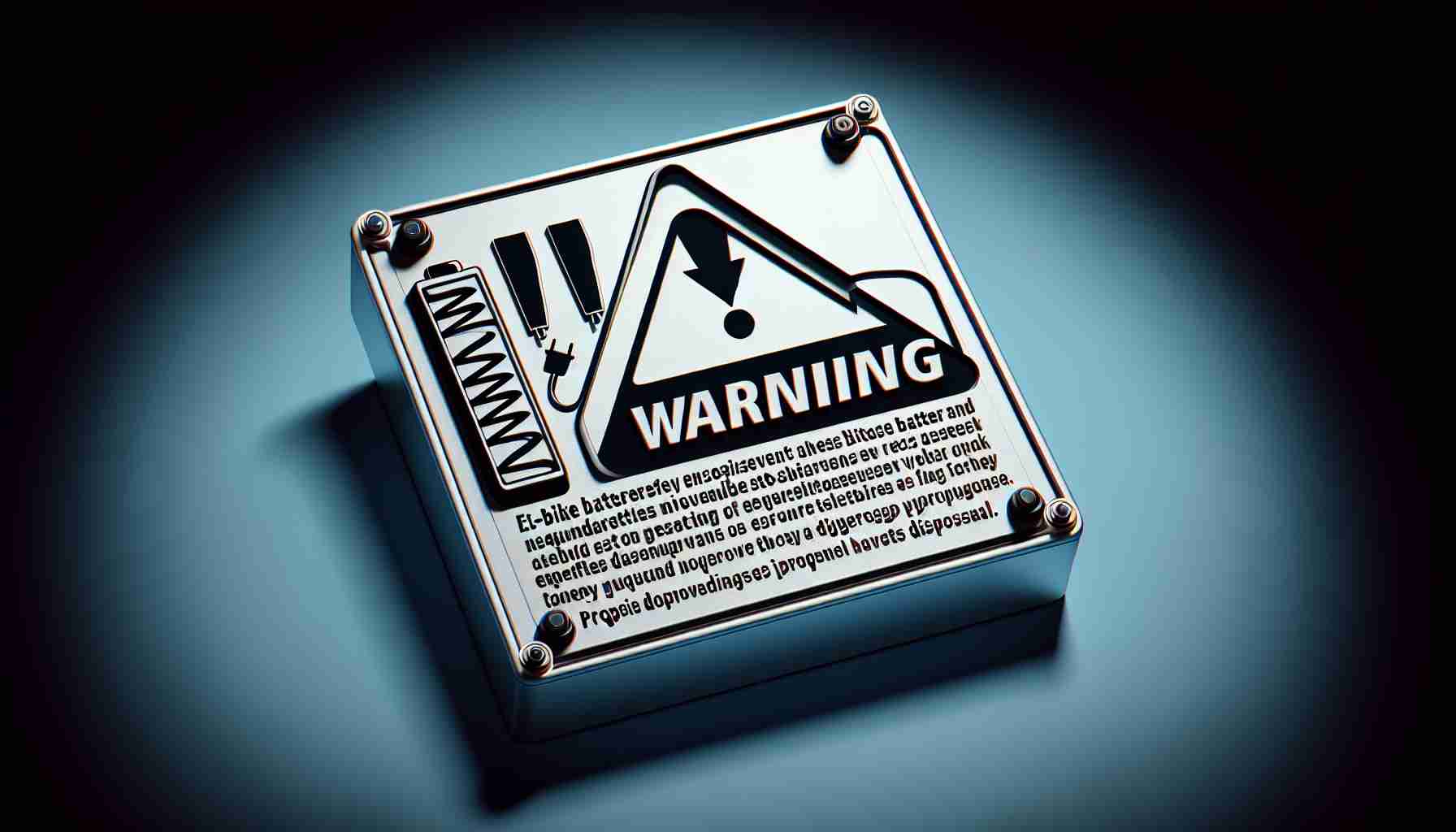The safety risks associated with certain e-bike batteries have prompted federal safety officials to issue an urgent warning. These batteries, manufactured by a Chinese company called Unit Pack Power (UPP), have been found to overheat, leading to fires and significant property damage. Despite the alarming reports, the manufacturer has refused to recall the product, prompting the Consumer Product Safety Commission (CPSC) to issue this warning.
E-bike battery fires are particularly dangerous and challenging to extinguish. Once these batteries overheat, they become highly susceptible to catching fire. Therefore, safety officials are urging consumers to immediately stop using the UPP lithium-ion battery models U004 and U004-1, which are often used to convert pedal bicycles into e-bikes.
Consumer Reports has also raised concerns about the UPP battery’s failure to meet the voluntary UL standard. The manufacturer has declined to address this issue or coordinate a recall with the CPSC, further emphasizing the significance of this warning. These batteries have been available for purchase on popular online platforms such as Amazon and Walmart since 2018.
To address the potential risks, consumers are advised to detach the UPP battery from their e-bikes and contact their local recycling center for proper disposal instructions. It is crucial to handle potentially hazardous batteries with care and avoid disposing of them in regular trash or standard battery recycling boxes found in retail and home improvement stores. Instead, follow local regulations for safe disposal.
Additionally, the CPSC is cautioning against charging lithium-ion batteries overnight. It is recommended to charge them when you are present in case of an emergency. While there are basic bike standards in place for e-bikes, there are currently no federal regulations for the electrical systems, including charging ports, cables, and batteries.
Prioritizing consumer safety, it is vital to heed this warning, discontinue the use of the identified e-bike batteries, and adhere to proper disposal methods. By raising awareness about these safety risks, we can ensure the well-being of both individuals and properties.
The e-bike industry has experienced significant growth in recent years, with more people opting for electric bicycles as a greener and cost-effective mode of transportation. According to Market Research Future, the global e-bike market is expected to reach a value of $38.6 billion by 2025, growing at a CAGR of 9.01% during the forecast period. This indicates a rising demand for e-bikes and related components, including batteries.
However, the safety risks associated with e-bike batteries, as highlighted by the UPP lithium-ion battery models, pose a significant challenge to the industry. The incidents of overheating and fires associated with these batteries raise concerns for both consumers and manufacturers. As a result, the reputation of the e-bike industry could suffer if proactive measures are not taken to address these safety issues.
In terms of market forecasts, the e-bike industry is expected to witness continued growth, driven by factors such as increasing adoption of e-bikes for commuting, rising environmental concerns, and government initiatives to promote electric transportation. However, incidents like the one involving UPP batteries could potentially impact consumer confidence and slow down the market growth.
To mitigate these risks, manufacturers and regulatory bodies must work together to establish stricter safety standards for e-bike batteries. This includes implementing thorough quality control measures during the manufacturing process, conducting regular safety tests, and ensuring compliance with established industry standards, such as the UL (Underwriters Laboratories) standard.
Furthermore, it is crucial for online platforms and retailers to exercise due diligence when selling e-bike batteries to consumers. Proper verification and certification procedures should be in place to ensure that only safe and reliable products are made available to the public. Consumers should also actively research and check for safety certifications before purchasing e-bike batteries.
Addressing the issues related to the UPP battery incident and similar safety concerns is not only essential for the well-being of consumers but also for the overall growth and sustainability of the e-bike industry. Manufacturers should take immediate action to address any safety issues that arise and cooperate with regulatory bodies to ensure swift recalls if necessary.
For more information on e-bike safety, industry trends, and related news, you can visit industry-leading websites such as ElectricBike.com, E-Bike Tips, or CyclingIndustry.news. These sources provide valuable insights into the latest developments, market forecasts, and safety considerations in the e-bike industry.







